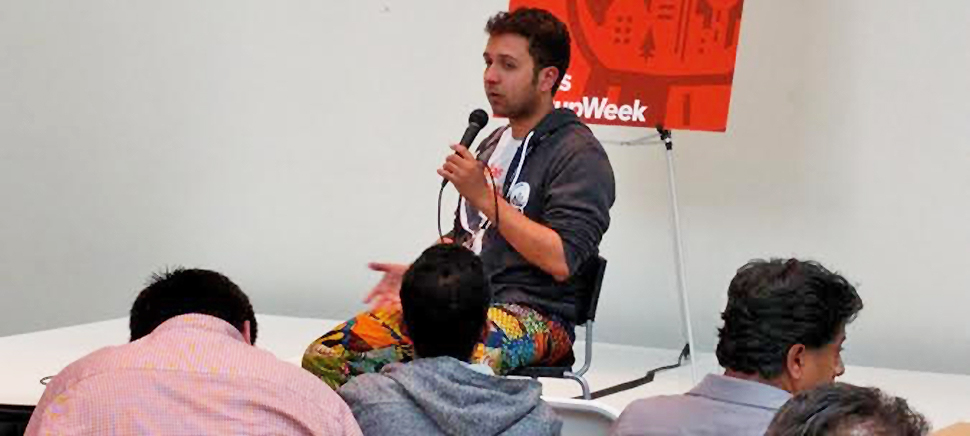THE GAMING APPROACH CAN WORK IN APPS, BUSINESS
Today’s video game culture has created a new type of reward-based system where unlocking achievements, leveling up, and exploring are all second nature. Now, it’s time to take that and apply it to apps and businesses.
David Fares, a software and gaming guru, calls it gamification—using the same reward system that many video games use to encourage people to engage with a product or service.
A REWARD COULD COME IN MANY FORMS
Fares led a seminar on gamification Tuesday afternoon at the Dallas Startup Week conference.
It works for popular apps such as Uber for both the driver, who wants five star ratings and hundreds of trips, and passengers, who could potentially get bragging rights for having the most rides.
“You are touching on the achievement side of gaming,” Fares said. “You don’t have to spend money. You don’t have to offer rewards to offer an engaging experience. It’s a way to engage and hit on these different levels without adding much. You don’t even need a technology background.”
“You are touching on the achievement side of gaming.” – David Fares
Fares encouraged attendees to explore ways they could add incentives to their own apps or companies. He said sometimes, the user interface itself can make something seem like a game. According to Fares the popular dating app Tinder is a good example because it makes swiping left and right fun and easy. Unlike the tedious nature of other dating sites where people scroll through pages of profiles.
“Come at it from a perspective of game design,” Fares said. “What incentive is there and how does it add value to our customers or to our employees.”
He said it doesn’t have to be in the digital space.
REWARDS CAN COME IN ANY FORM
Picture a coffee shop with a cabinet in the corner of the room with one drawer partially open. One day, a customer peeks inside to find a paper with a secret coffee that’s not available on the menu. They’ll ask about it at the counter, tell their friends about it, and start looking for other hidden items.
It’s very similar to how the video game industry keeps people coming back for more as they try to unlock achievements.
The e-gaming industry is quickly gaining popularity as financial backers pay “professional” gamers to play “Call of Duty” or other games and crowds stream it live.
There’s even the new Upsilon Circuit game, much like a video game version of “The Hunger Games,” where only eight people can play at a time worldwide and if you die you can never play again.
The audience who watches the game can influence the outcome by dropping goodies that help a certain player or make life miserable for another player.
“You get skills that are associated with doing well in math.” – David Fares
Fares said gamification can even work in education by making learning more fun and tying it in with something children already enjoy.
“You get skills that are associated with doing well in math,” Fares said. “You now have access to a special program on the graphing calculator so it will automatically do the quadratic formula.”
He said gamification can also be used in politics for better or for worse.
China offers rewards and points for people who display patriotism or other positive traits. Taken to extremes, though, people lose points for associating with opponents of the government.
“It’s all controlled by the government,” Fares said. “They knock you down points for who your friends are.”
Schedule for Thursday, April 14
Schedule for Friday, April 15
Schedule for Saturday, April 16
For a daily dose of what’s new and next in Dallas-Fort Worth innovation, subscribe to our Dallas Innovates e-newsletter.




























